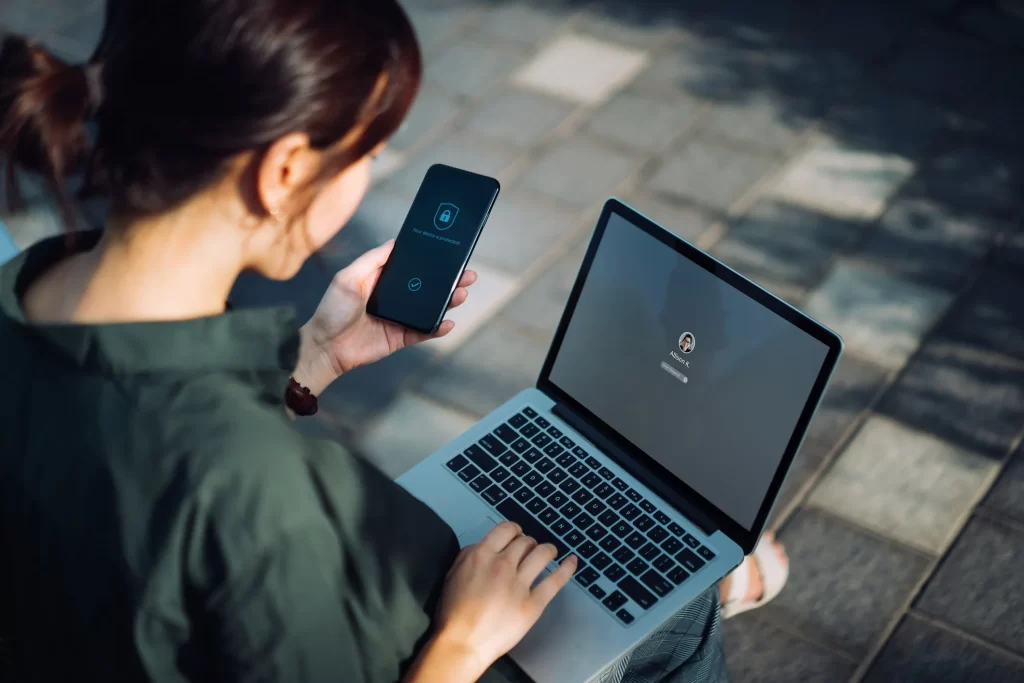
The importance of privacy concerns has increased in a time when the Internet permeates every aspect of daily life. Internet privacy refers to the rules and guidelines for protecting the privacy of personal information while it is collected, stored, and shared online. The difficulties and complexities associated with the dynamics of online privacy have changed along with the Internet.
‘Digital rights’ and ‘internet rights’ are now frequently used in political and intellectual discussions across the globe.When discussing the global information society, it was formerly plausible to claim that the standpoint of human rights had received little consideration (Drake & Jørgensen 2006, 5).

Three-quarters of Australians believe data breaches are one of the largest hazards to their privacy, according to the most recent Australian Community Attitudes to Privacy Survey, which the Office of the Australian Information Commissioner (OAIC) released on Tuesday. That represents a 13% increase since the survey’s previous round in early 2020.
Australians are worried about data breaching
According to the research, 85% of Australians are aware that businesses like Facebook, Google, and media publishers are gathering and utilising their personal data. This indicates a high level of public knowledge regarding data collection. The same number of people (85%) expressed concern about the data acquired by these businesses, with 50% believing that businesses are requesting too much personal information.
Consumers are most worried about their personal information being stolen in the event that their data is breached (76%), closely followed by their anxiety that their data will be sold or shared with other businesses (58%).

Picture by Getty
Importance of Data Privacy
Individuals have more control over their personal information thanks to data privacy. They are given the option to control how their data is gathered, utilised, and shared. Data privacy ensures that personal information is not used or misused without permission by respecting the autonomy of persons. You have more control over the data you decide to keep private thanks to data privacy. Even if the use or sharing of a person’s personal information does not have the potential to result in data theft or other cybercrimes, everyone has the right to prevent such use or sharing.
Children’s Online Privacy Protection Act (COPPA): This U.S. federal regulation was created to guarantee parental approval is obtained before any personal information about children under the age of 13 is gathered as more kids are using the internet.
Health Insurance Portability and Accountability Act (HIPAA):This federal legislation safeguards the confidentiality of medical data gathered by physicians, hospitals, insurance providers, or employers.
General Data Protection Regulation (GDPR):Standards for the gathering and use of personal information in Europe are established by this European regulation. Individuals also have the right to refuse to have their information collected or to ask for it to be removed.
California Consumer Privacy Act (CCPA): This California state law, which went into effect in 2018, provides customers more control over the personal data that companies gather about them, including the ability to know what information is collected and the right to refuse to have it sold or shared.
Stop data theft!
One of the most significant cybercrimes involving the security and privacy of personal data is identity theft. An identity thief can start accessing credit lines, stealing your tax refund, or emptying your bank account with just a few essential pieces of personally identifiable information (PII), such as your name, driver’s licence number, and Social Security number.
Dark web monitoring, which searches the depths of the internet for your personal information and notifies you if anything sensitive is located, is a suggested practise because many identity theft victims don’t realise what has happened until after the damage has been done.Many privacy regulations are motivated by the desire to safeguard consumers. A recent study revealed that 74% of consumers place a high value on privacy and that 82% of them are worried about how personal data is collected and utilised. This makes it a crucial consideration for businesses when developing their policies. A definite impact on brand value is encouraging more businesses to adopt ethical and transparent data privacy practises.
A data breach is a possible outcome of an attack, whereas a hack is a purposeful attempt to gain unauthorised access. Hackers often aim to steal sensitive information from individuals, such as passwords, credit card numbers, and banking information, or from businesses, such as intellectual property, financial data, and customer information. Strong data privacy and security procedures can serve as an effective deterrent in any scenario.
Data privacy vs data security

Data security is concerned with the cybersecurity tools, processes, and controls used to preserve the data, whereas data privacy specifies the rules for managing and collecting data based on its kind and importance. Firewalls, data encryption, access control, and network monitoring software are all examples of data security tools. Data privacy specifies how that data should be used in an ethical and responsible manner while data security guards against cyber risks. Sorell (2015, 7) criticises Wikileaks and Anonymous for their methods due to their lack of transparency, arbitrary choice of causes, and disregard for the rights of their “targets,” which can even render their actions “subversive of central tenets of human rights.”
Data security and privacy go hand in hand, like two sides of the same coin. For instance, your privacy policy will cover techniques for long and short-term data preservation, information sharing with third parties, and consumer agreement to supply their information if your business gathers personal information from online customers to complete their orders. Once these guidelines have been developed, you must ensure that you have the necessary data security procedures and technologies in place to safeguard client information from both internal and external threats.
Related stories
- How Safe Is Incognito Mode/Private Browsing, Really?
- How to create a privacy policy that protects your company and your customers
- “Data Breach or Hack? Know the Difference
Dashline being the saviour
With Dashlane, you can quickly generate and store robust, one-of-a-kind passwords for all of your logins, assisting in the protection of your online identity. Passwords, personal information, and payment information can all be autofilled to save time. On any of your devices, Dashlane is a shortcut that makes everything you do online faster and safer.
Through the use of two stages when logging into a website or app, 2-factor authentication (2FA) enables you to increase the security of your online activities.
Multiple approaches exist for Dashlane to employ 2FA. When you sign into Dashlane on a new device, we always demand two steps. Your contact email address receives a verification code if you input your master password. This code is entered to gain access to your account. This procedure “authenticates” your device, allowing us to verify that it belongs to you.
We do, however, provide an additional type of 2FA that you can enable for particular logins or for your entire account. You install a “authenticator” app on your device, which generates and stores tokens.
Internet privacy for today
The most vulnerable individuals are better protected the more we fight for and normalise Internet privacy. Australians actively care about how their personal data is handled online; they are not just passive Internet users. Businesses who operate in or target the Australian market would do well to take into account these attitudes when drafting their data and privacy policies because the demand for greater openness and control is clear.A staggering 78% of Australians want to learn more about the complexities of handling company data. This reveals a strong desire to comprehend the path that their personal information takes after being shared with internet businesses. The importance of transparency and the need for clarity regarding data monetization procedures, storage standards, and sharing agreements are highlighted by the high percentage.
Reference list
Cranor, L. F. (2022, June 7). How Everyone Can Get the Online Privacy They Want. Wall Street Journal. https://www.wsj.com/articles/online-privacy-consent-11654540664
Nast, C. (2021, October 20). Internet Privacy—Or Lack Thereof—Is Quietly Affecting Your Mental Health. Glamour. https://www.glamour.com/story/internet-privacy-affects-your-mental-health
Strange, R. (2019, December 6). Why is internet privacy important and how are people fighting for it? Ethical Consumer. https://www.ethicalconsumer.org/technology/why-internet-privacy-important-how-are-people-fighting-it
Center Launches Project to Research Privacy Rights Online. (n.d.). NYU Stern Center for Business and Human Rights. https://bhr.stern.nyu.edu/blogs/center-launches-project-privacy-rights-online
Digital confidence. (n.d.). ESafety Commissioner. https://www.esafety.gov.au/research/digital-behaviours-older-australians/digital-confidence
From the Optus/Medibank Data Breach to the Privacy Reforms in Australia. (n.d.). Www.youtube.com. Retrieved October 1, 2023, from https://youtu.be/i26Kj6CeMNY?si=P3mrUlHBo3KXQl8F
85% of Australians are Concerned about Data Privacy. (2021, October 7). Australian Cyber Security Magazine. https://australiancybersecuritymagazine.com.au/85-of-australians-are-concerned-about-data-privacy/